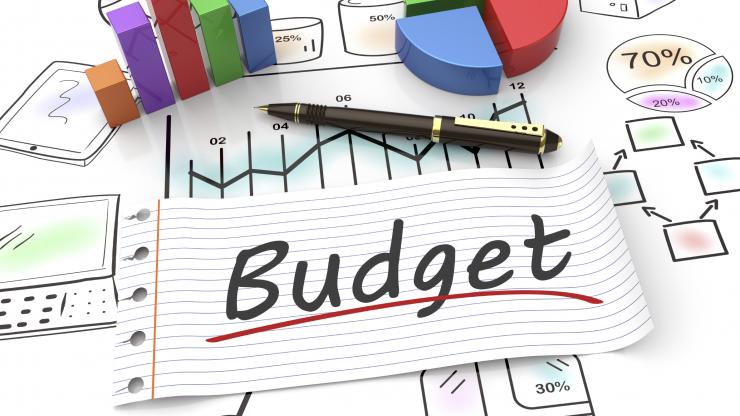The 2018 budget represents what the Minister of Finance refers to as a new paradign shift, and a new opportunity to “get things right”, by diversifying the economy away from a reliance on the gift – or is it the curse – of bountiful supplies of oil and gas.
Over the next 5 days we look at the main items in the budget. We would be very interested to hear your views on the 2018 budget. Has the Minister got his sums right?
On the 2nd October 2017 the Minister of Finance, the Honourable Mr. Colm Imbert delivered the third national budget of the current PNM administration.
The central tenet of the 2018 budget is based squarely on a paradigm shift.
The Government’s position is that while subdued growth in the world economy and domestic economy present significant challenges for all citizens, the present economic situation provides Trinidad and Tobago with another opportunity to fix the economy. In the Minister’s own words, we must “get it right, and we must seize and pursue it vigorously in order to protect our country’s future.”
But what is it that we must pursue so vigorously?
The answer – diversification.
As an aside – while consecutive administrations have all to a certain degree recognised the need for economic diversification, the lure of windfall revenues and the spending possibilities presented always derailed any attempt to diversify the economy away from a reliance on receipts derived from oil and gas.
Hence the current situation provides another opportunity to pursue diversification, re-think our expenditure patterns, and improve our revenue administration.
Driving fast while running on empty?
Over the last three years there has been a catastrophic reduction in revenues derived from oil and gas from TT$20.9 billion in 2014 to TT$2.8 billion in 2017.
Yet our taste for imported goods continues unabated to the extent that for the current year the value of imports will exceed the value of exports by TT$5.2 billion.
The decline in oil and gas revenue and our spending patterns have had a serious adverse effect on foreign reserves. The loss in oil and gas revenues translates to an annual loss of US$2.7 billion per year in foreign currency. Over the last four years the Central Bank has had to inject US$7.5 billion into the commercial banking sector to satisfy the demand for foreign exchange.
But we are not running on empty yet. While foreign reserves have declined from US$11.5 billion in 2014 to a current level of US$8.6 billion they still represent 10 months import cover.
No reliable economic data may hide the fact that it is not all bad news
While noting that the nation continues to suffer from a lack of reliable economic data, the Minister stated that the Central Statistical Office expects the domestic economy to decline by 2.3% in 2018. However, this estimate does not consider the expected turnaround in the energy sector that the Minister expects to materialise during the second half of 2018.
Based on statistics provided by the Central Bank, core inflation is now down to 1.7% year on year, while food inflation measures just 0.5% year on year. Add to this the CSO’s estimate that the unemployment rate at the end of 2016 was just 3.6%, suggests that the economic fundamentals and the base for sustained recovery of the economy of Trinidad and Tobago are sound.
Dealing with the fiscal outturn of the 2017 Budget
The 2017 budget was predicated on an oil price of US$48 per barrel and a netback gas price of US$2.25 per MMBtu. The actual outturn for oil and gas prices in 2017 is US$48.03 per barrel and US$2.00 for gas.
The Minister expects to fall short of his 2017 revenue target of TT$47.4 billion by TT$10 billion because of delays in receiving one-off revenue flows relating to the sale of CL Financial assets. This delay was – in the opinion of the Minister – caused by lack of cooperation on the part of CL Financial shareholders coupled with an attempted hostile takeover of CL Financial.
To protect the taxpayer an application to the court to wind-up the company was made and with the appointment of a liquidator by the court, recovery of the TT$15 billion still owed to taxpayers is more certain in 2018.
Other factors that contributed to the shortfall in revenue included:
- Non-implementation of the Property Tax.
- Non-implementation of new legislation designed to tax the Gaming Industry.
- Shortfalls in collection of Value Added Tax.
- Lack of additional public offerings of First Citizens and TTNGL et al
- Poor revenue administration.
Because expenditure, originally budgeted at TT$50.5 billion, was TT$3 billion lower than expected the revised deficit for 2017 is expected to be TT$12.6 billion, almost twice the original budgeted amount.
How the 2017 deficit was financed and the prospects for 2018
The 2017 deficit has been financed by:
- A drawdown of US$252 million (TT$1.7 billion) from the Heritage and Stabilisation Fund.
- Foreign borrowing of US$300 million (TT$2.0 billion).
- A loan drawdown of TT$280 million from the Inter-American Development Bank.
- Domestic borrowing of TT$6.6 billion.
As a result, the public-sector debt stands at TT$93.7 billion the equivalent of 62.6% of revised GDP, compared to TT$87.5 billion or 58.8% of GDP at the end of September 2016.
The prospects for 2018 in this area appear brighter. The Minister does not anticipate significant additional borrowing in 2018 because liquidating the CL Financial assets should fill any potential shortfall.
Closing thoughts – time to consider your investing strategies
Firstline Securities Limited offers comprehensive coverage of local and international markets with a bias for the energy sector. Firstline offers many unique opportunities to put surplus cash to work either as your asset manager or investment advisor. Please contact us for more details at info@firstlinesecurities.com or at 868.628.1175, we can discuss your investment needs in detail and craft a portfolio that makes sense for you. We look forward to hearing from you.



